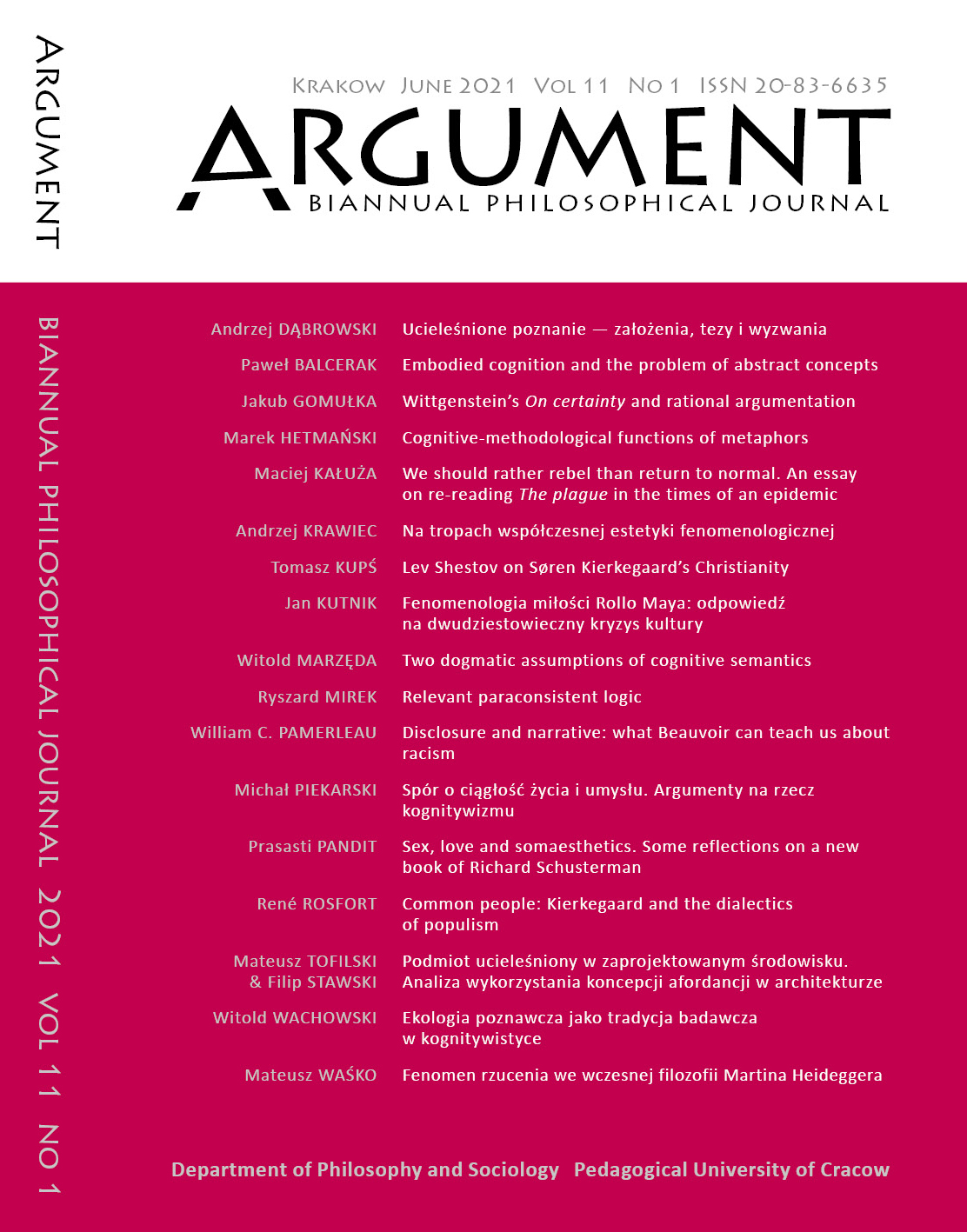Two dogmatic assumptions of cognitive semantics
Keywords:
cognitive semantics; manifest image; George Lakoff; Mark Johnson; Ronald Langacker; image schemaAbstract
The author describes two uncontrolled assumptions in cognitive semantics that researchers have barely discussed within this paradigm. Cognitive semantics shows how language shapes human knowledge and what are the basics of conceptualization in language. However, conceptualization must reflect parts of the manifest image of the world. Since primitive cognitive categories are taken from everyday bodily experience, they must form the world as it appears to be in a common prescientific view. The first dogmatic assumption of cognitive semantics says that concepts of folk psychology and common sense physics precede other concepts and categories. The second assumption presupposes the existence of a fundamental theory that could explain the basic concepts and origins of all human cognition and explain how fundamental and primary conceptualizations appear, how they are reflected in categories of language and why some of them precede others. In this sense, it appears to be a universal theory, a theory of all possible knowledge.


